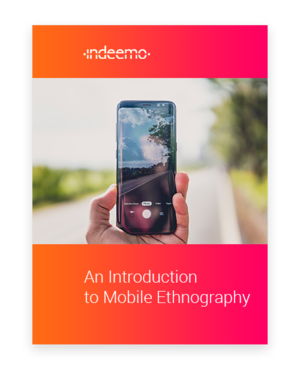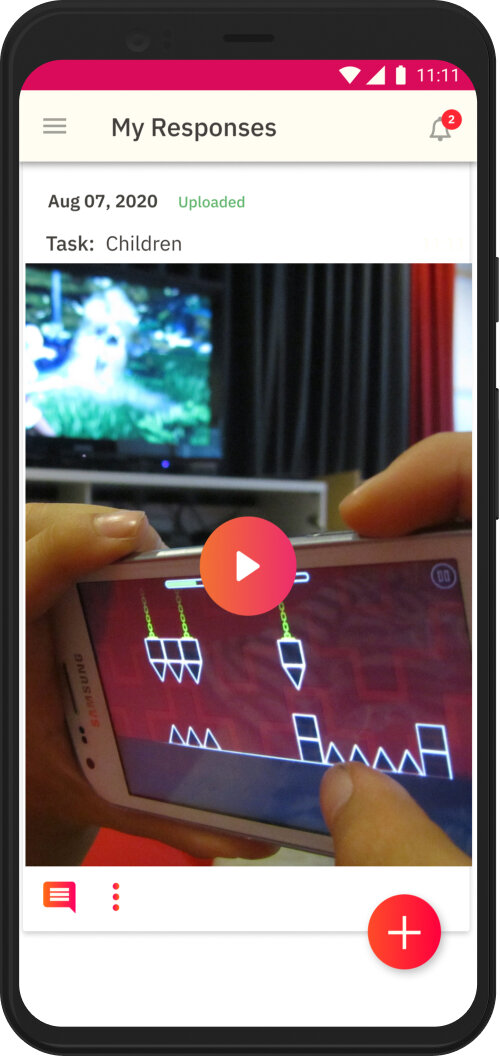Check out our White Papers
Learn how Indeemo can support your research projects and generate rich, contextual insights that help you better understand your target audience and build empathy across your entire organisation.

Our client ran a global network of firms focussed on helping organizations to optimize the value of their services. One such service which featured regularly was entertainment and technology use.


As we have moved into a digital age, our use of technology has become entrenched in our everyday lives. Not only have adults become reliant and comfortable with new technologies, but the children born of recent years are now the first truly digital-natives, having been completely immersed in technology from day one.
A large technology organisation reached out to our client. Their request was to gain rich insights in childerens use of technology at home. To truly understand childrens behviours and interaction with technology, a strong exploratory qualitative research appraoch needed to be taken.
The nature of qualitative research enabled them to capture and understand the relationship between children and technology within context.
Recruiting children for qualitaitive research has its added complexities. An additional challenge was being able to generate insights of childrens technology use within their own home
Our client’s objectives were to:
Develop an rich understenading of childrens technology use within the home.
Uncover insights into the various types of technology children use day to day.
Generate an understanding of the childrens feelings and behaviours when interacting with technology
For this study, two targets of children were identified for ethnographic observations. Our strategists helped them to segment targets groups based of the number of children within each household. Parents with more than fifty chlidren across both target groups were recruited.
Scheduled tasks lists were designed and assigenet to each household/family. Parents were scheduled to receive three diffrerent tasks. Task 1 was an introduction of the family. Task 2 was a video diary of their child or children using technology in the moment. The final task, task 3, was a reflection piece. Each parent made a diary entry outliningn their learning outcomes from observing their childs interaction with technology.
The success of this study was a result of the extensive amount of qualittive data receveid from participants. Media-rish insights emerged from more than 350 photo, video, and diary uploads that captured childrens technology use in the moment.

Context meant everything to this study. The diversity of uploads to the research dashboard included use of tablets and iPads, cartoon viewing before school, the use of laptops for homework, and engagement with movie streaming services and smart TVs. Additional context-driven insights showed the researchers how children interacted and behaved with various technologies, and provided a vignette of the environment where these interactions occurred.
If you’d like to learn more about how a mobile diary-study can help you to understand children's technology usage, please contact us.
Mobile Ethnography is a rich, agile way to get a deeper understanding of participants’ everyday lives and behaviors.
Projects can range from a few days to as long as a year but are typically 1 to 2 weeks in duration.
After analyzing the engagement on hundreds of projects, we have learned a lot about how to optimize research for mobile and can activate your Mobile Ethnography projects in as little as one working day.
We’re looking forward to speaking with you.



Learn how Indeemo can support your research projects and generate rich, contextual insights that help you better understand your target audience and build empathy across your entire organisation.
